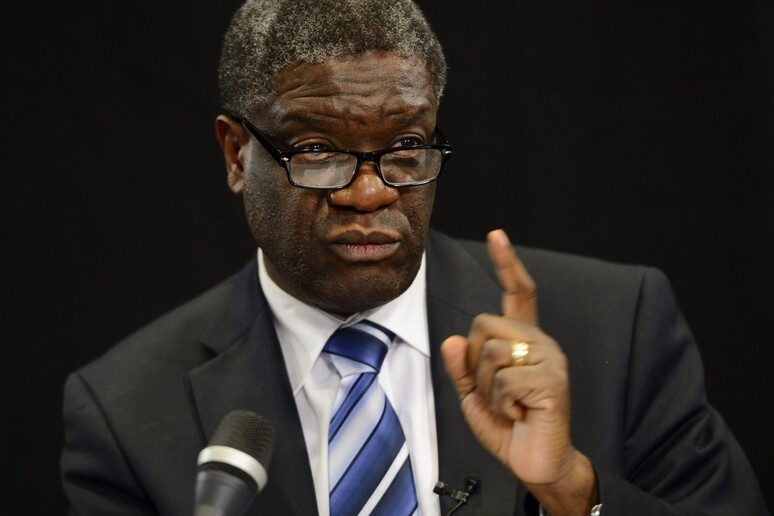A Congolese gynaecologist
who founded a hospital for war gang-rape victims in the
Democratic Republic of the Congo has received this year's
Sakharov Prize from the European Parliament.
Denis Mukwege, 56, founded and works in Panzi Hospital in
Bukavu, South Kivu, where he specializes in the treatment of
women who have been gang-raped by rebel forces.
Mukwege, touted as a potential candidate for the Nobel
Peace Prize, has become the world's leading expert on how to
repair the internal physical damage and psychological injury
caused by gang rape.
He has treated some 14,000 women since the Second Congo
War, some of them more than once, performing up to 10 surgeries
a day during his 18-hour working days.
As well as the main prize for Mukwege, a special mention
was made for the Ukraine peace campaigners EuroMaidan.
Mukwege succeeds 2013 Sakharov Prize winner Pakistani
Malala Yousafzai, the 17-year-old schoolgirl shot in the head by
the Taliban for campaigning for female education who recently
got the Nobel Peace Prize.
Previous recipients of the prize include Nelson Mandela and
Wei Jingsheng.
In 2012 it went to two jailed Iranian human rights
activists, film director Jafar Panahi and lawyer Nasrin
Sotoudeh.
The 2011 prize went to five representatives of the Arab
people from Libya, Egypt, Syria and Tunisia.
US whistleblower Edward Snowden was on last year's
shortlist. Italian anti-mafia writer Roberto Saviano made the
list in 2009.
The Sakharov Prize, named after the late Soviet scientist
and dissident Andrei Sakharov, was established by the European
Parliament in December 1988.
The winner receives 50,000 euros.
ALL RIGHTS RESERVED © Copyright ANSA











